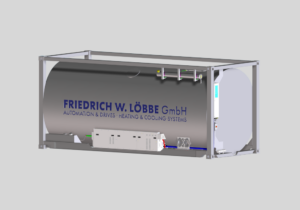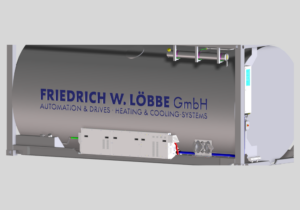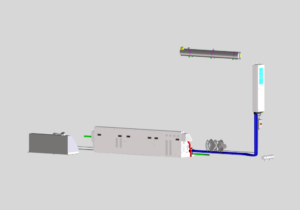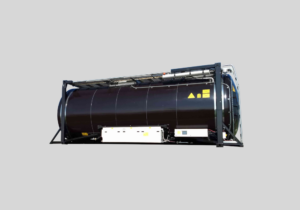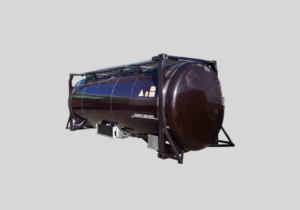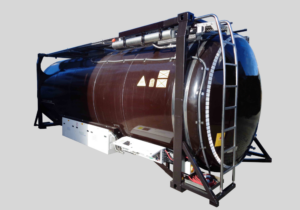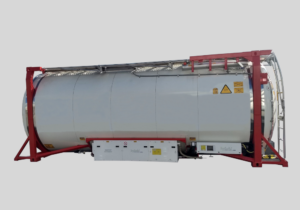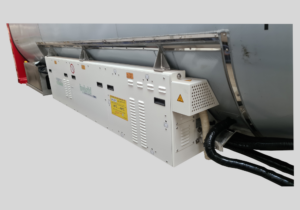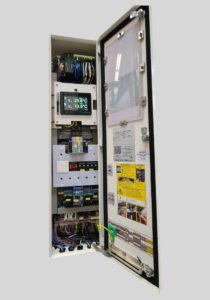hybrid self-sufficient heating system for tank containers
Our system series dflex, dflexHP & hybrid are heating systems specially designed for self-sufficient (mains-voltage-independent) use. This system series, with its two different operating modes, offers particularly great flexibility. In addition to electrical heating via 380-440V CEE plugs, an economical diesel heating system enables self-sufficient operation. dflex, dflexHP & hybrid are compatible with almost all tank containers on the market – even for retrofitting. Modular in design, each system is an individual and also maintenance-friendly design with many expansion options.
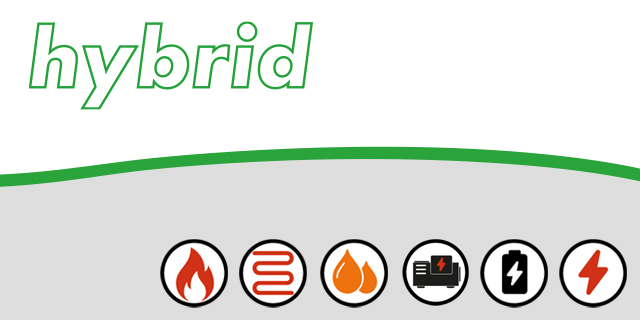
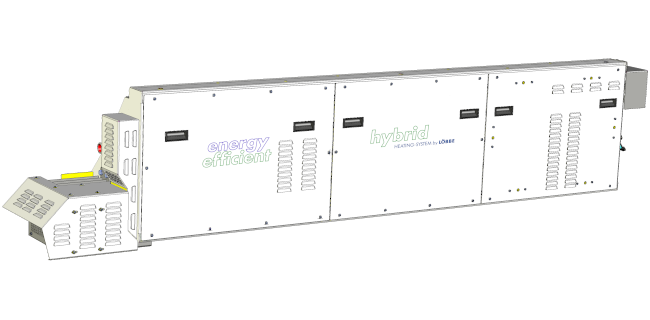
Function:
The systems of the autarkic series temper the tank contents indirectly via the outer wall of the container. For this purpose, the circulation pump conveys a heat transfer fluid in a closed circuit through the half-pipes, which are normally used for steam heating. The heat transfer fluid is a food-hygienically safe glycol-water mixture. The electric heater and diesel heater installed in our system are part of the closed circuit, depending on which mode the system is in, the heat transfer fluid is heated either by the electric heater or the diesel heater.
In electric mode, the electric heater integrated in the system heats the heating medium; this mode is used, for example, for stationary loading & unloading. The heating of the heat transfer fluid is carried out according to the principle of a continuous flow heater, in this process the fluid is strictly separated from the customer’s product. The power supply for the system is provided by an industry standard 380-440V CEE plug, this also charges the battery for autarkic needs.
In diesel mode, the diesel heater integrated in the system heats the heating medium; this mode is used for intermodal transport when no external power supply is available. The heating of the heat transfer fluid is carried out according to the principle of a continuous flow heater, in this process the fluid is strictly separated from the customer’s product. A battery supplies the electronics of control and temperature regulation independently of the mains supply. It is always being charged during mains operation.
With dflex/dflexHP, the battery can be connected to the vehicle’s electrical system for trickle charging during truck transport, under the condition that the truck can deliver sufficient power, so the system’s runtime is limited only by the diesel tank.
With the hybrid system, a diesel generator – fully integrated exclusively for this purpose – automatically charges the battery as soon as its capacity falls below 15%. This means that the system’s running time is only limited by the diesel tank.
For both modes, heating is fully automatic. The flow temperature at which the heat transfer medium flows into the container’s pipe circuit can be set with high precision. This means that even very temperature-sensitive products are protected from quality losses due to too high contact temperatures.
hybrid is the high power system with additional fully integrated power generator and therefore has the widest range of functions. In addition to the standard functions, the system has a more powerful burner and can temporarily activate the boost mode, a dual operation of electric & diesel heating. Thanks to the higher power, the flow temperature is reached very quickly. The difference between dflexHP and hybrid is the fully integrated power generator, but the generator does not provide the voltage for the electric heating energy, but only charges the battery. This makes it up to 10 times smaller than a conventional external clip-on generator and has the advantage that the runtime is only limited by the diesel tank. hybrid, like dflexHP, comes with better basic equipment than dflex. It basically has a modern battery system, the new microflexPLC or PLC control, extended telematics, control and safety functions and much more. hybrid is the system that has the longest self-sufficient runtime. Just like dflexHP, it offers a number of additional features beyond the basic equipment.

